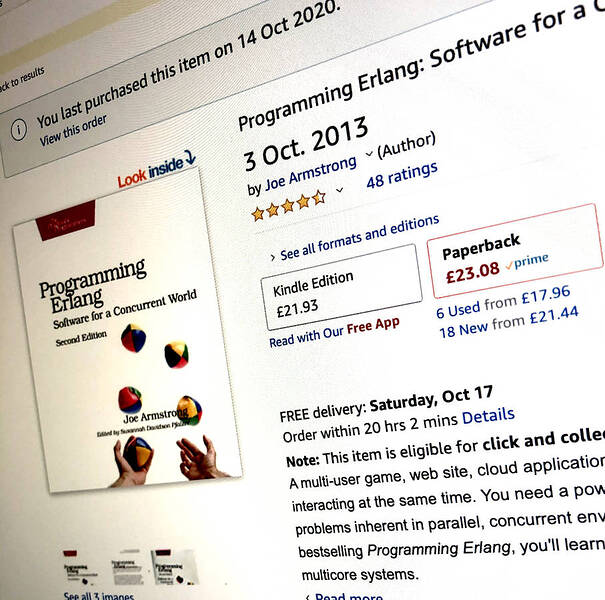It’s great to see so many book authors, would-be book authors and other content creators here - so if you have an idea for a book or some other resource that you would love someone to write or create… this could be your chance to inspire them or grab their attention 
I’d love to see more books about Phoenix LiveView, Crystal, Rust, Erlang and hopefully one day, Gleam! 
A dedicated book on Phoenix deployment.
Reliably deploying (and scaling) Phoenix applications, to cloud and VPS, with and without Docker and Kubernetes.
I’ll buy this book in a heartbeat.
You can also substitute Phoenix with Go.
There are numerous tutorials on deploying and scaling Go with docker and kubernetes, but those tutorials are dispersed. A dedicated book will be great on the same topic, even for Go.
10 posts were split to a new topic: Different ways of structuring code - what do you think is best?
@pillaiindu thanks for the book suggestions! Now to find someone to author them …
You’re welcome, and thank you! 
This is more a suggestion for publishers such as @PragmaticBookshelf - a lot of people comment how they don’t have a CS degree and would love to do one or find a book that covers the same topics - so I wonder whether it might be an idea to do a series of books, that, combined, cover everything you are likely to learn in a CS degree?
I reckon it might prove popular 
A book on Data Structure and Algorithm througj Functional Paradigm (and with a Functional Programming Language, and, NOT JavaScript to show the examples).
Like what language? Clojure?
You probably know about A Common-Sense Guide to Data Structures and Algorithms, Second Edition by Jay Wengrow already.
Just wondering more specifics of what you would be looking for in such a book.
Thanks!
Margaret
Disclaimer: I have not read the Common-Sense Guide to Data Structure and Algorithms book and I am basing what I wrote below on excerpt and ToC. Apologies in advanced if what I’m about to say is covered already in it (Or Mazes for Programmers, for that matter)
So, most data structure and algorithm books out there default to a non functional language, there exists pseudo codes that use mutation freely, and data structures that would be “unnatural” for a functional language (Doubly, Circular Linked Lists etc). I just was suggesting a book that focuses on algorithms leveraging immutable data structures, the runtime complexities of them, and the more “functional friendly” data structures and algorithms (i.e. Zipper, Finger Tree, Inductive Graph). I guess the language could be anything like Elixir, F#, Clojure, Scala etc.
Pearls of Functional Algorithm Design and Purely Functional Data Structure are two books I encountered that deal with these. Mixing in with more contemporary and simple examples and how the functional way differs from the more well known (for now, hopefully) way could be at the end of each chapter?
@mafinar thanks for the idea! I’ll run the idea by Jay since it is a similar topic and our proposal committee. Iff they like it, I’ll see if I can find an appropriate author.
Look at what I just ordered ![]()
I don’t normally buy paper programming books (just find them easier to read on the Kindle and digital is better for the environment) but I thought I would make an exception for this one as it would feel like there’s a part of Joe here ![]()
Anyway just posting here because I would love to see @rvirding write a book about Erlang, Elixir and LFE. I know I’ve mentioned it to him on numerous occasions before, but I hope he won’t mind hearing it one more time ![]()
I don’t do books. I am terrible at writing things and lose interest after a while. 
@mafinar re your suggestion for a functional programming language book for algorithms and data structures, we just had the first beta releast of
Genetic Algorithms in Elixir (PragProg) in case you are interested.
Yes just saw the post. This is great, and a very interesting topic. Thanks!
I’d love to see a 7 WebAssembly languages in 7 weeks book from PragProg (like these: https://pragprog.com/categories/seven-in-seven) 
In addition to books, there are many ways to share your knowledge. Apart from books, there are online courses (for instance, “Functional Programming with Erlang”), Master Classes, MOOCs.
I really like your interesting presentations at conferences (“Erlang: Evolution” is one of them).
I agree - and in Robert’s case, his personality definitely shines through via video! Perhaps if enough of us nag him he might do a video course or two 
Here’s one- Seven Data Structures in Seven Weeks.

